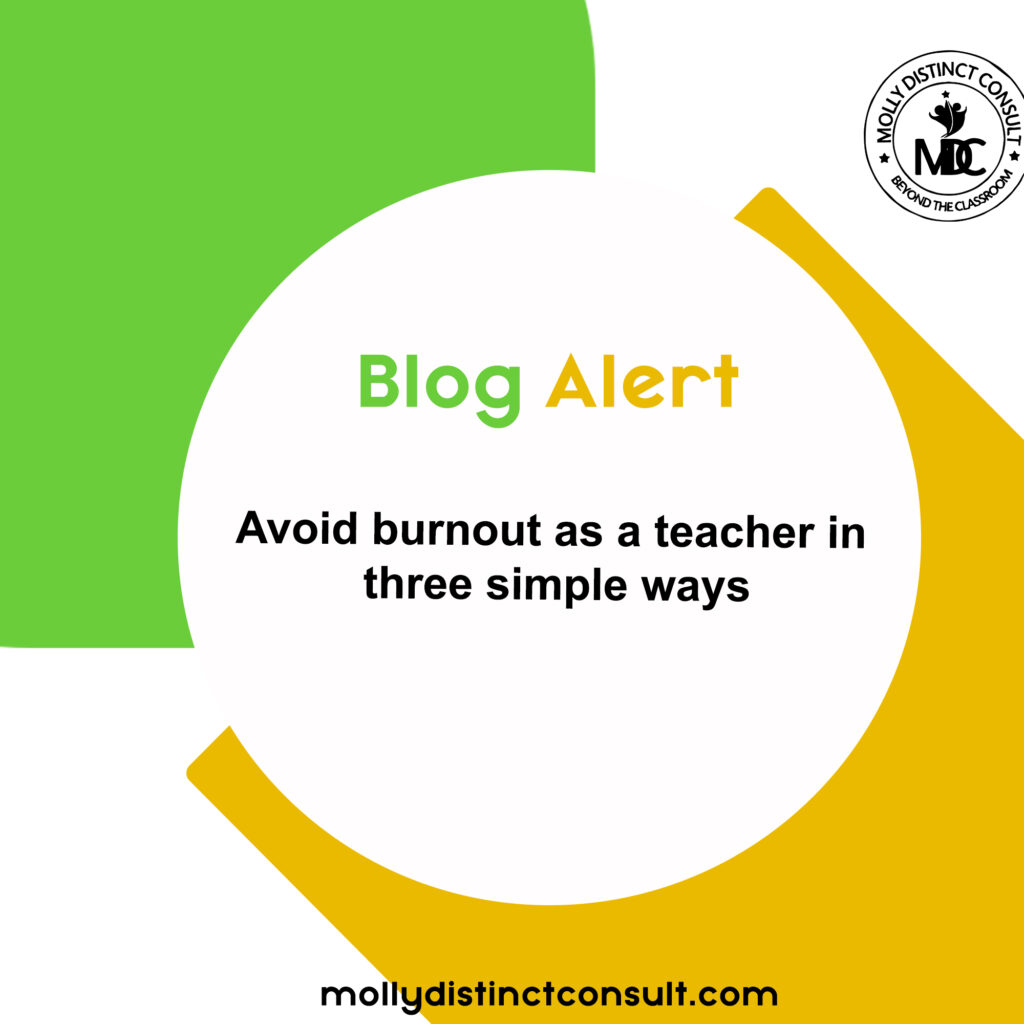
AVOID BURNOUT AS A TEACHER IN THREE SIMPLE WAYS
AVOID BURNOUT AS A TEACHER IN THREE SIMPLE WAYS
The teaching profession comes with a lot of emotional and intellectual demands that can send your stress levels sailing into the moon. Other professions may be tempted to see a 13-week holiday job but they hardly notice the burdens that come with meeting the expectations of school administrators, societal modeling, and parents.
In the 1970s, Herbert Freudenberger emphasized that jobs which deal with a high level of purpose or morality, and commitment from professionals who put their comfort and choices on the line for the good of others are more likely to involve occupational burnout.
For a teacher, burnout includes one or a combination of the following signs:
Emotional tiredness: you become easily frustrated and you may have reduced tolerance for slow learning students. You could also experience loss of focus, mood swings, and insomnia. Your body may also react to certain physical symptoms such as weakness, susceptibility to illnesses, headaches, palpitations, and gastrointestinal discomfort.
Loss of interest: one may become pessimistic or cynical towards the teaching profession. The individual experiencing burnout may prefer to avoid contact with the school, students, colleagues, or the environment where the school is located. This is due to the loss of enjoyment in the activities that in former times satisfied them, in this case, teaching.
Dip in performance: this may be evident as poor performances or reduced productivity or more time used to produce results. It may result in feelings of hopelessness and apathy. Low confidence levels and irritability with teaching tasks usually accompany the dip in performance.
It is not enough to notice these signs, you have to take measures else it may graduate in serious emotional issues. These three simple steps will give you control over your wellbeing and keep you energized for continued productivity.
Be conscious of your stress levels and emotions
Take the time to assess your mental state. Exercises such as meditation and attention to your reaction to events can go a long way to help you in handling or avoiding burnout. You can choose to talk to others or undertake any hobby or recreation that helps your mind remain positive. It is important that you study yourself, note when you are crossing your stress threshold, and discover what activities help relieve stress.
Create a balance between work and your life
Every one of us has the meaning of a good life. You need to strike a balance between your teaching job, creating a good life for yourself while including relaxation. Sometimes, you are tempted to commit your entire schedule to teach which is not wrong, but you cannot pour out of an empty cup. If you hope to give your best to your students, then you have to keep yourself at your best too. You do that by doing the things you love, spending time with family and friends, and giving yourself breaks. Also ensure that before you accept any new responsibility, evaluate its impact on your existing schedule and be bold enough to reject work you cannot handle.
Be open to the possibility of rejecting some offers
It is absolutely fine to say ‘no’ to offers that you possibly can’t meet up with. It could be due to the impact it may have on the students or due to limited time. When you learn to refuse yourself some things, it would be easier to refuse others. You surely need this ability to maintain your health and mental wellbeing. You should not ignore the place of asking for help when you feel you cannot handle burnout alone.
Read also
HOW DO YOU HANDLE RICH RUDE STUDENTS?
Six things to do to be on track as a professional teacher